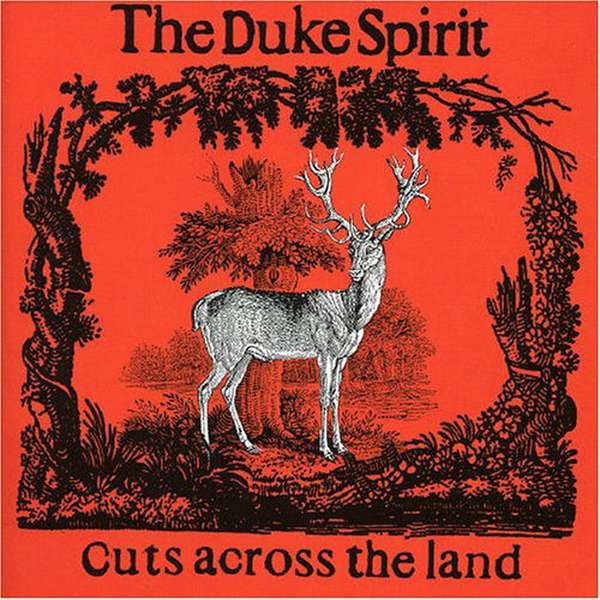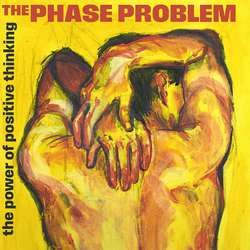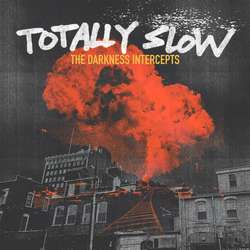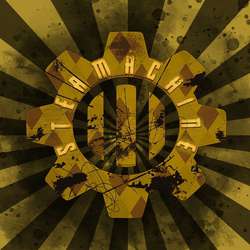There are two kinds of reviews for The Duke Spirit's Cuts Across the Land - enthusiastic endorsements that focus on Liela Moss and her throaty, sensual vocals, or accounts of the sheer unadulterated indifference this most recent effort from the London-based group provokes. Unless, of course, you're that guy on Amazon.com who refuses to hedge his bets, and just plain hates the album. So what's the deal?
Released in May on Loog Records and only recently trickling into North America, Cuts Across the Land is the first full length offering from The Duke Spirit. Critical darlings of the London scene, their small-bar gigs and EP's have generated favorable responses almost since the band's formation in the summer of 2002. Obviously working their way through their favorite albums by the Stones, The Velvet Underground, The Pretenders, and even the Pixies, the band seems perfectly poised to drag rock music back to its soulful, bluesy roots. It's totally impossible to avoid comparing them with other bands, unless you're eleven years old and have no exposure to anything but Green Day (in which case you'd be skipping down Rock's memory lane without being any the wiser). Fact is, The Duke Spirit embrace a variety of influences and channel them shamelessly.
Cuts Across the Land gets off to a rollicking good start with the title track. There's no artful beating about the bush here: repeating basic chord progressions are harnessed in a noble kind of way, working to pull the listener back through the eighties and early nineties. This track sets the tone for the album, and songwriting and execution by Toby Butler (bass), Luke Ford (guitar), Dan Higgins (guitar) and Ollie Betts (drums) immediately begins exposing most of the ghosts in the machine.
A great deal rests on singer Liela Moss, and her lyrics. Conceptually minimalist and ultra modern, her lyrics and the wild, throaty delivery of them carry the listener through the landscape in brisk, impassioned bursts of love and base instincts. At her best, Moss comes through as the talented equal of P.J. Harvey and Kim Gordon, effortlessly delivering in that old-soul way that can't be pulled off by the Joss Stone's of the world.
The lyrics do wander at points, however, and are perhaps a bit too far removed from anything real by their minimalism. The fourth track, 'Win Your Love', while simple and catchy, is saved from an almost terminal silliness only by the growling, deliberate intensity of Moss's parting words: 'Well I know your eyes and I know your bones, yeah I feast on those eyes and I feast on those bones, baby'.
The murky and droning 'Bottom of the Sea' has a drippy, twangy quality that, while mesmerizing, never quite recovers itself to become convincing. Moss' vocals are dwarfed in parts by the music, and it's hard to tell if this was purposeful, or if the attempted effects just didn't materialize as expected.
'Hello to the Floor' may be the most 'contemporary' song on the album, reminding one of a more urgent, immediate Mazzy Star. Moss's harmonica gives the song a last, gentle push towards greatness. A standout track, for sure, which, in its way, interrupts the otherwise consistent spirited rhythm of the album.
The album's several really solid tracks present a compelling juxtaposition, droning in spots, but lurching with catchy rhythm. 'You were born inside my heart', 'Lion Rip' and 'Lovetones' present something else that takes a few listens to sort out'to great success, Moss channels The Cult's Ian Astbury. And this doesn't sound nearly as preposterous as it probably looks in print.
It's a slippery thing, this album. It's almost as though it should be drowning in derivation, but manages instead to hoist itself out of the puddle simply by being quite good at what it attempts. It's confidently holding a place at the table for rock that doesn't define itself by garagey, one-dimensional Ramones-like posturing.
Does Cuts Across the Land accomplish anything new? I'm not sure it does. And I'm not convinced it really matters. This is, for all intents and purposes, a consciously crafted regrouping of the bluesy rock of days past, and all the seams are proudly visible. For all its apparent evocations, cloaked in a veil of warm and fuzzy production, the album works. Not with every listen, but most of the time. Something in the distorted muddy guitar work and sandpaper-and-scotch vocals suggests you might want to listen again. And at some point, it stops mattering that you might really be hearing someone else. The spirit is there, all right, and perhaps that was the point all along?



